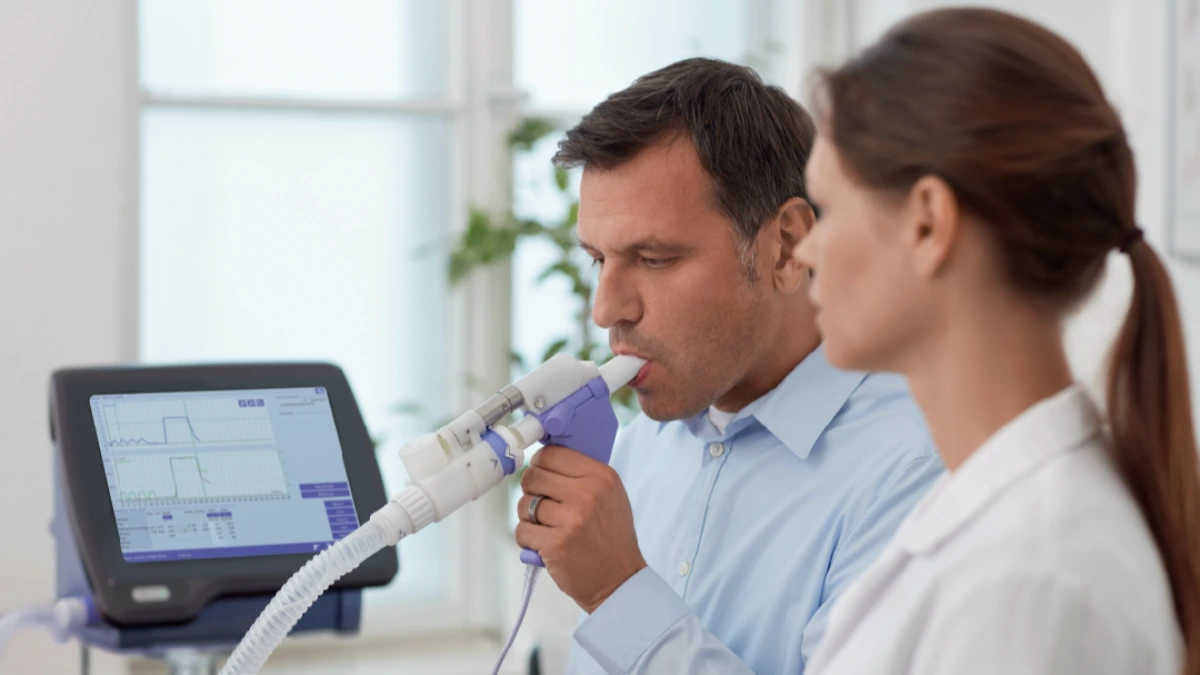
Pulmonary Function Test (PFT)
What is a PFT Test?
A Pulmonary Function Test (PFT) is a group of non-invasive tests that measure how well your
lungs
are working. These tests evaluate lung volume, capacity, rates of flow, and gas exchange.
PFTs
help doctors diagnose and monitor respiratory conditions.
Why is a PFT Done?
Doctors recommend PFTs to:
- Diagnose lung conditions like asthma, COPD, interstitial lung disease, or pulmonary
fibrosis
- Monitor the progression of a lung disease
- Check how well treatment is working
- Evaluate lung function before surgery
- Assess lung damage from environmental or occupational exposures
Types of Pulmonary Function Tests
- Spirometry: Measures how much air you can inhale and exhale, and how
quickly.
- Lung Volume Test: Measures the total volume of air your lungs can hold.
- Diffusion Capacity Test (DLCO): Assesses how well oxygen passes from
the
lungs into the blood.
- Peak Flow Measurement: Measures the speed of air coming out of the
lungs.
Most tests are performed by breathing into a mouthpiece connected to a machine.
How to Prepare for a PFT
- Avoid eating a heavy meal before the test
- Do not smoke for at least 4–6 hours before testing
- Wear loose, comfortable clothing
- Follow your doctor's instructions regarding medication use
What to Expect During the Test
- You’ll be asked to take a deep breath and blow out as hard and fast as you can into a
tube.
- Some tests may be repeated multiple times for accuracy.
- The entire procedure usually takes 30 to 60 minutes.
- The test is painless, though you may feel slightly lightheaded afterward.
Understanding Your Results
PFT results are compared with normal values based on your age, height, sex, and ethnicity.
The
results can show:
- Obstructive lung disease (e.g., asthma, COPD)
- Restrictive lung disease (e.g., pulmonary fibrosis)
- Normal lung function
Your healthcare provider will explain what your specific results mean.
Are There Any Risks?
PFTs are safe for most people. Rarely, they may cause:
- Dizziness or shortness of breath
- Coughing or mild chest discomfort
- Slight risk for people with severe heart or lung conditions
Conclusion
Pulmonary Function Tests are essential tools for diagnosing and managing lung diseases. They
provide valuable insights into your respiratory health and guide your treatment plan.
